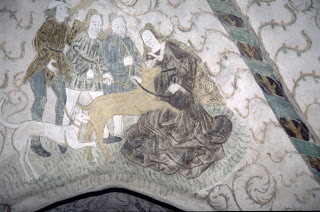Improvisation as a theological method, part 3. Bernard of Clairvaux

In the history of the Western idea of love, Bernard of Clairvaux holds a major position. Beside his 85 sermons on the Song of Songs, his treatise On Loving God is of a particular interest. Still today recognizable ideas of romantic love emerged in the 12th century in the songs of troubadours. At the same time, theologians discussed the theme of love, to a certain degree in the same vein. However, Bernard did not consider love as a languishing emotion, it was the view of his antagonist, Abaelard (1079-1142). In Abaelard’s opinion, pure love does not expect its fulfillment. Whoever loves God does not think of anything else, not even one’s own salvation. I love God, without considering whether I find my bliss in him or not. Although this idea has some poetic vigor and it surfaces now and then in the history of mysticism, it has the disadvantage of portraying God as a capricious lover who escapes us and plays with our emotions. Bernard’s approach to love in his On Loving God is...

